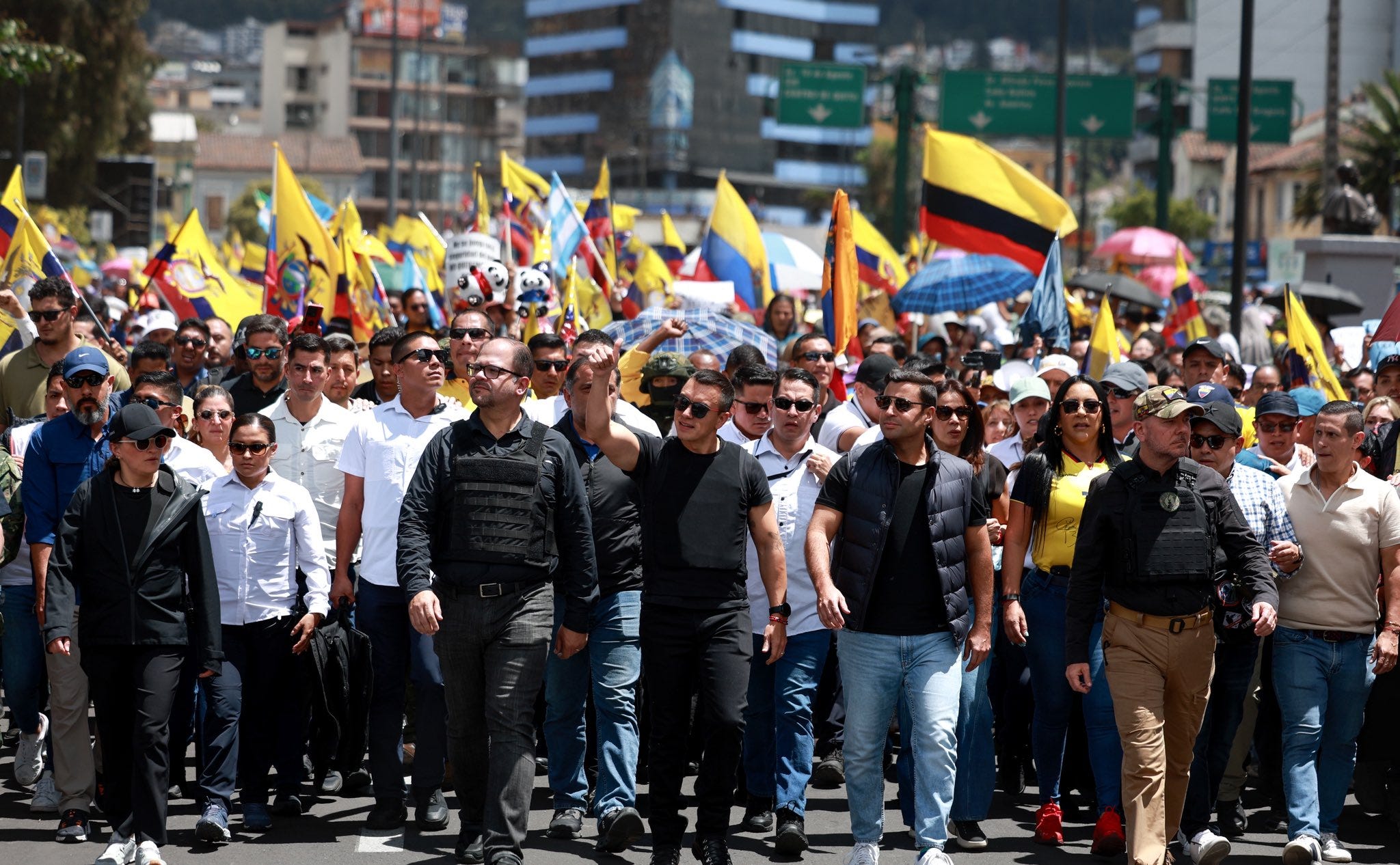Noboa expands his war: this time against Ecuador's Constitutional Court
After it struck down a series of laws that would have granted security forces broad powers, Noboa declares the court "an enemy of the people"
This is an installment of the “Ship’s Log” series, more personal entries on the beats we cover for paid subscribers. Sebastian Barriga is a journalist who grew up in Ecuador and is now based in Colombia
If you haven’t signed up for a paid subscription, we urge you to consider doing so. We have plans that start at just $5/month, and the resources help us continue bringing you the stories that most big media companies miss.

Right-wing president Daniel Noboa is coming for Ecuador’s Constitutional court. After magistrates struck down large sections of three laws that granted broad powers to police, Intelligence services, and lawmakers, on the grounds they were unconstitutional, the young leader called the court “an enemy of the people.”
Naboa called for supporters to take to the streets on August 12 to protest the court. The main march in the capital city Quito, was led by the president himself. Dressed in black and wearing a bulletproof vest, he described the court as “nine people enthroned” for life who were abusing their power by “tearing down laws that would give them security.”
Alongside him, demonstrators held up images and posters showing the faces and names of the nine judges of the Court, with the phrase: “These are the judges who are stealing our peace.”
Other protesters described the court as “criminals” and even “gangsters in robes.”
Noboa has also proposed a public referendum for December, which, among other measures, would give Ecuador's National Assembly, where his party holds a majority, the power to impeach judges from the country’s top court, setting the stage for a dramatic power struggle between the branches of the country’s government.
Noboa’s party justified the now-defunct bills as necessary for an “internal armed conflict” against organized crime, the President declared last January. But critics, such as Human Rights Watch, say the laws would grant impunity for security forces who have been accused of grave human rights abuses, including the murder of children, arbitrary arrests, and forced disappearances.
